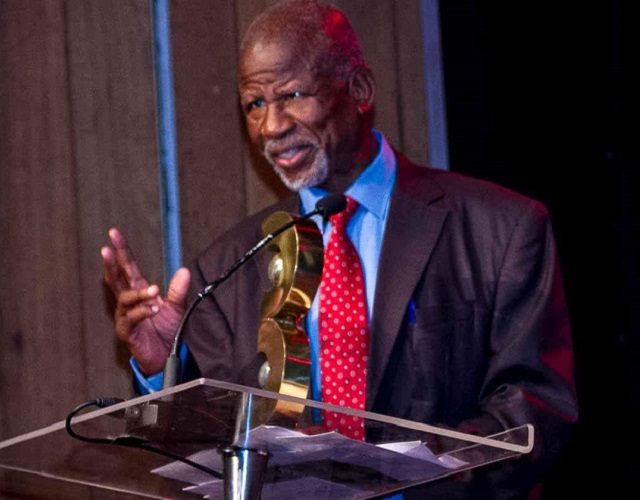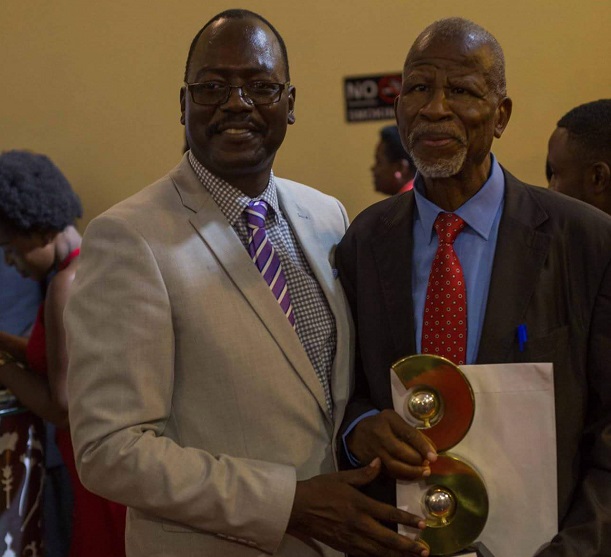Historian declares self ‘immortal’

Nqobile Tshili, Showbiz Correspondent
RENOWNED historian, Mr Pathisa Nyathi, at the age of 67 believes has achieved immortality, declaring that his works will be remembered long after his death.
Mr Nyathi was last month accorded a National Arts Merit Lifetime Achievement Award, his third award after bagging two others from the same institution, the first one in 1994.
The Founder of Amagugu Heritage Centre that is situated in Matopo, Matabeleland South says his life achievements will immortalise his name.
The culturalist and researcher does not remember the number of books he has penned in his lifetime, but notes that he publishes a minimum of four books per annum.
In an exclusive interview with Saturday Leisure, Nyathi jokingly said he needs a student to count the number of books he has written.
He said the burning desire of never to die has pushed him to walk the extra mile to write and publish books whose content will remain relevant long after he is dead.
“I’m a strong believer that one must never die. One dies physically but when I look at people like King Tshaka, they still talk about him. He lived many years ago but there’ll never be a time when people will not talk about King Tshaka. Same with King Mzilikazi who died in 1868, over 100 years ago but his name is still there, it’s a legacy,” Nyathi said.
“I’m driven by that insatiable desire that beyond the grave, let my name live somehow through books or cultural things that I have established. What you write does not follow you to the grave. Even if I die now, the books that I’ve written will speak, so I’m destined to speak forever. That’s what I want. As long as my books are there, there’ll be people who’ll be reading and they’ll always be read — that’s what I mean by immortality, continuity.”
Mr Nyathi said he is saddened by people who die and are forgotten the following day as they would have not left any footprints.
For one to have a legacy, Mr Nyathi suggested that they make sacrifices as greatness does not come to people who slumber.
“I look at some people today, they die and tomorrow they are forgotten. Sometimes I can’t understand why some fellows go to bed at 8 or 9PM and are still asleep up to 7AM and 8AM the following day. We can’t develop a country or build a legacy behaving like that.”
Mr Nyathi also talked about how lonely he finds himself in the world of writing as it requires that he spends a lot of time in solitude for maximum concentration.
He notes that the brightest time of writing books is when he is researching about his subject.
Recognition, Mr Nyathi said, has also kept him going, noting that it is one of the things that make him believe that his works will speak for him long after his death.
“Recognition is very important. It’s a source of inspiration and motivation. There’re times when it becomes difficult, working can be very difficult, but when you’re recognised, you become motivated,” he said.
“You cannot attach monetary value to recognition and honour — those are priceless things that are very important.”
The historian said the advent of new technologies should be embraced and technology cannot be blamed for cultural decadence. He believes new technologies can be used to preserve traditional culture and heritage.
“The problem now is that we’re not uploading information onto the Internet like material from our culture and people. If you check the Internet, you’ll realise that we hardly upload data, for instance on how isitshwala is cooked.
“Don’t blame the white person, it’s us who ought to upload data,” he said.
“We’re not sharing information. We used to be oral back then where one would sit with their father, mother, grandfather, grandmother but today that’s not there. If we want to make sure there’s inter-generational transmission of energy we should use these gadgets.”
Mr Nyathi said although young people have the edge to acquire information, they are not keen on researching as they prefer quick solutions to problems.
On his newest publication, Mr Nyathi profiles his former classmate, a soldier who became deployed in the Zimbabwe National Army (ZNA) Five Brigade Unit. The Fifth Brigade was deployed in Matabeleland and Midlands region in the early 1980s during the civil unrest which later became known as Gukurahundi.
“To me, this is a very interesting book about a former schoolmate of mine who I was in the same class with when we were doing Standard 5 and 6. He then joined the Zimbabwe People’s Revolutionary Army (Zipra) and at Independence, he joined Five Brigade.” — @nqotshili













Comments